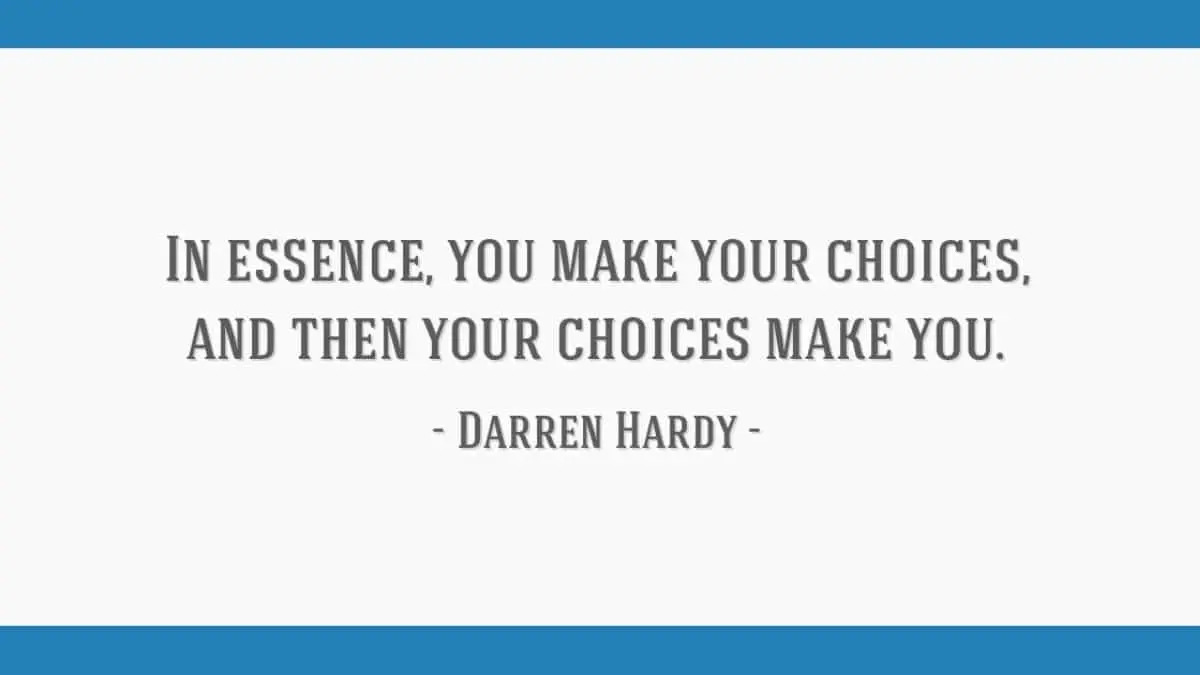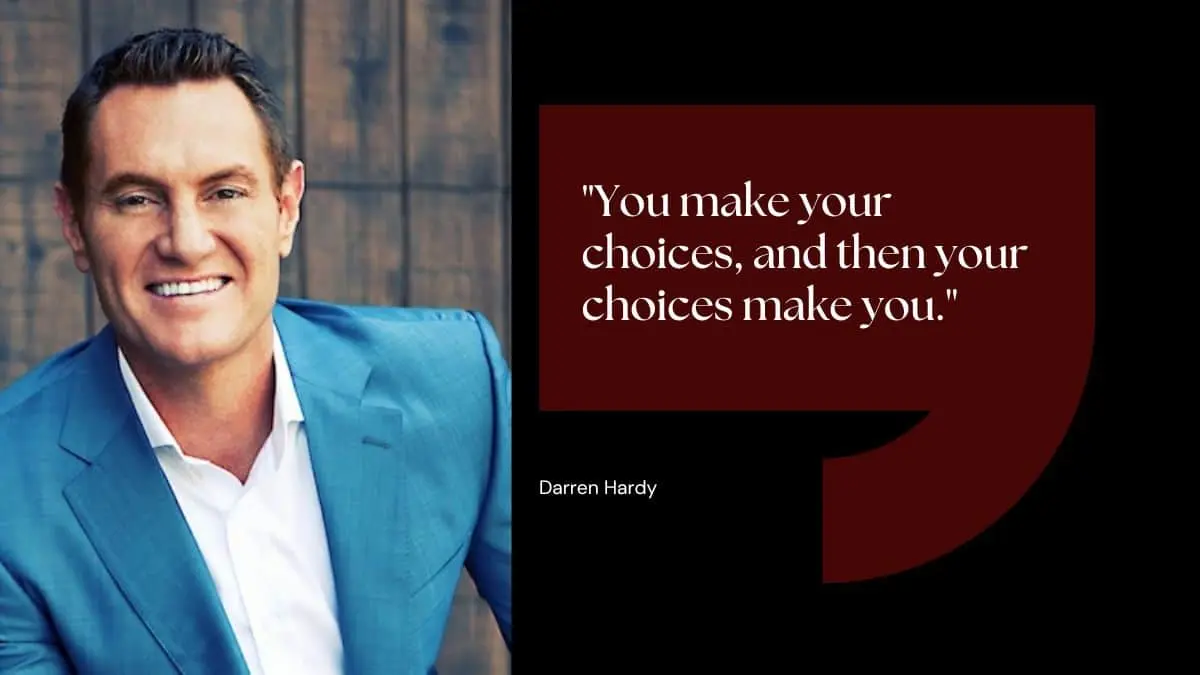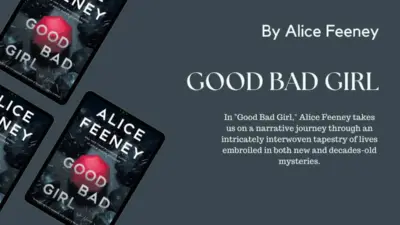Choices are the invisible architects of our lives. From the trivial to the transformative, the choices we make every day construct the narrative of who we are. It’s a relationship so intrinsic that it can be distilled into a simple but powerful quote: “You make your choices, and then your choices make you.” This saying captures the essence of human agency and the cycles of cause and effect that permeate our existence.
But how does this work? How do our choices, shaped by a plethora of factors from our upbringing to societal norms, go on to define us in return? In this Blog post, we will delve into the intimate relationship between choices and self-identity. We’ll look at how choices are made, how they shape our lives in both immediate and long-term ways, and offer guidance on making choices that align with your true self.
The Power of Choice
The idea that choice has power is hardly new, but its implications are often understated. Think of your choices as the brushstrokes in a painting. Each individual choice may seem inconsequential when observed in isolation, like a single stroke of paint. However, when you step back and look at the entire canvas, you can see that those individual strokes converge to create something far more significant—your life.
The Role of Choices in Shaping Lives
Every time you make a decision, you are laying a brick in the foundation of your future. Some choices, such as your career, your partner, or your place of residence, have obvious and immediate consequences. Others, like daily habits and the people you surround yourself with, may have a subtler, more cumulative effect. For instance, choosing to exercise regularly might not transform your health overnight, but it sets a course for a healthier, more active lifestyle that pays dividends over time.
The Psychological and Philosophical Perspective
Psychologically speaking, choices are a reflection of your values, your priorities, and your vision for your life. The great existentialist philosophers often emphasized the role of choice in human freedom. Jean-Paul Sartre, for example, contended that we are “condemned to be free,” and it is through our choices that we define ourselves. Similarly, modern psychology explores how decision-making processes, from cognitive biases to emotional states, can influence and be influenced by our sense of self.
The Ripple Effect of Choices
Choices are never made in a vacuum. Your decisions often affect not just you, but also those around you, creating a ripple effect that can either uplift or cause harm. Think of it as a butterfly effect, where a single decision can set off a chain reaction of events that could dramatically change your life or even someone else’s.
Examples to Think About
To understand the potency of choice, one needs to look no further than the numerous real-life Stories of individuals who changed their circumstances with a single, powerful decision. Whether it’s someone quitting a dead-end job to pursue their passion, a couple choosing to reconcile rather than divorce, or a young person opting for education over an easier, yet riskier path—each story underscores the transformative power of choice.
How Choices Shape You
Often, we make choices and move on, seldom stopping to reflect on the indelible marks they leave on our lives. However, every choice, whether big or small, works in tandem to mold us into the individuals we become. How exactly does this transformation happen?
Choices and Personal Development
Imagine you opt to take a course in public speaking to overcome your shyness. This choice doesn’t merely teach you how to speak in public; it cultivates courage, boosts self-esteem, and might even open doors for leadership roles. What started as a single decision evolves into a series of character-building experiences that contribute to your personal development.
Choices Define Your Identity
The decisions you make—from the political ideologies you support to the company you keep—play a huge role in shaping your identity. They reflect your values, ethics, and what you stand for. Over time, these decisions become so ingrained that they seamlessly integrate into who you are, so much so that imagining a life without these choices feels alien and unsettling.

Long-term Impact
Choices have long tails; their impact lingers and expands over time. For instance, choosing to marry a particular person doesn’t just influence your immediate happiness; it affects your emotional well-being, family life, and sometimes even your career years down the line. Likewise, a choice to prioritize work over family can have long-term implications on your relationships and emotional health.
Choices and Opportunities
Each choice you make either opens up new opportunities or closes certain doors. Deciding to go to college might introduce you to career paths you hadn’t considered, while opting to take a ‘gap year’ might provide life experiences that shape your world view in a different yet equally profound way.
Choices Affect Your Mental and Physical State
Our mental and physical well-being are often the cumulative results of our lifestyle choices. Opting for a balanced diet and regular exercise can lead to better health, whereas making poor dietary choices can have detrimental health effects over the long term. Similarly, our mental well-being can be shaped by our choices to seek help, connect with others, and engage in activities that bring joy and meaning.
The Chain Reaction of Choices
It’s intriguing to think that the choices we make are not isolated events, but rather links in a chain that binds our past, present, and future. Understanding this chain reaction can provide us with valuable insights into the complexities of human behavior and the cumulative impact of our decisions.
One Choice Leads to Another
The moment you make a choice, it sets off a series of events and subsequent choices. For example, the decision to go to a particular college sets in motion a myriad of other decisions—what major to choose, which classes to enroll in, what internships to pursue, and so on. In essence, one big decision becomes the parent of many smaller yet significant decisions.
The Butterfly Effect of Choices
Drawing inspiration from the Butterfly Effect—a term from chaos theory where a small change can lead to significant effects—the choices we make can sometimes have surprisingly outsized impacts. A simple act of kindness, a career change, or even a chance encounter can set in motion a chain of events that significantly alters the course of your life or others’.
Ripple Effects on Relationships
Your choices also influence those around you, creating ripple effects that extend far beyond the immediate circumstances. Deciding to prioritize family time over excessive working hours, for instance, doesn’t just impact you; it affects the well-being and happiness of your loved ones as well. Similarly, a choice to engage in dishonest actions may erode trust and impact relationships long-term.
Inertia and Choices
There’s also the inertia of choices, where past decisions make it easier or harder to make future ones. For instance, choosing to exercise regularly creates a habit that makes the decision to continue exercising easier. On the flip side, avoiding difficult conversations because you fear conflict could set a precedent that makes it even harder to address issues in the future.
Correcting Course: The Reversibility and Irreversibility of Choices
While some choices have long-lasting or irreversible effects, it’s worth remembering that new choices can often correct the course. However, the window for reversibility is not always open, making it essential to weigh the long-term impact of our decisions carefully.
Conclusion
The journey through life is paved with an endless array of choices, each with its own set of outcomes and repercussions. As we’ve explored in this blog, “You make your choices, and then your choices make you” is not just a catchy phrase; it’s a fundamental truth that encapsulates the cyclical relationship between our decisions and our destiny.
Also Read: Even miracles take a little time




